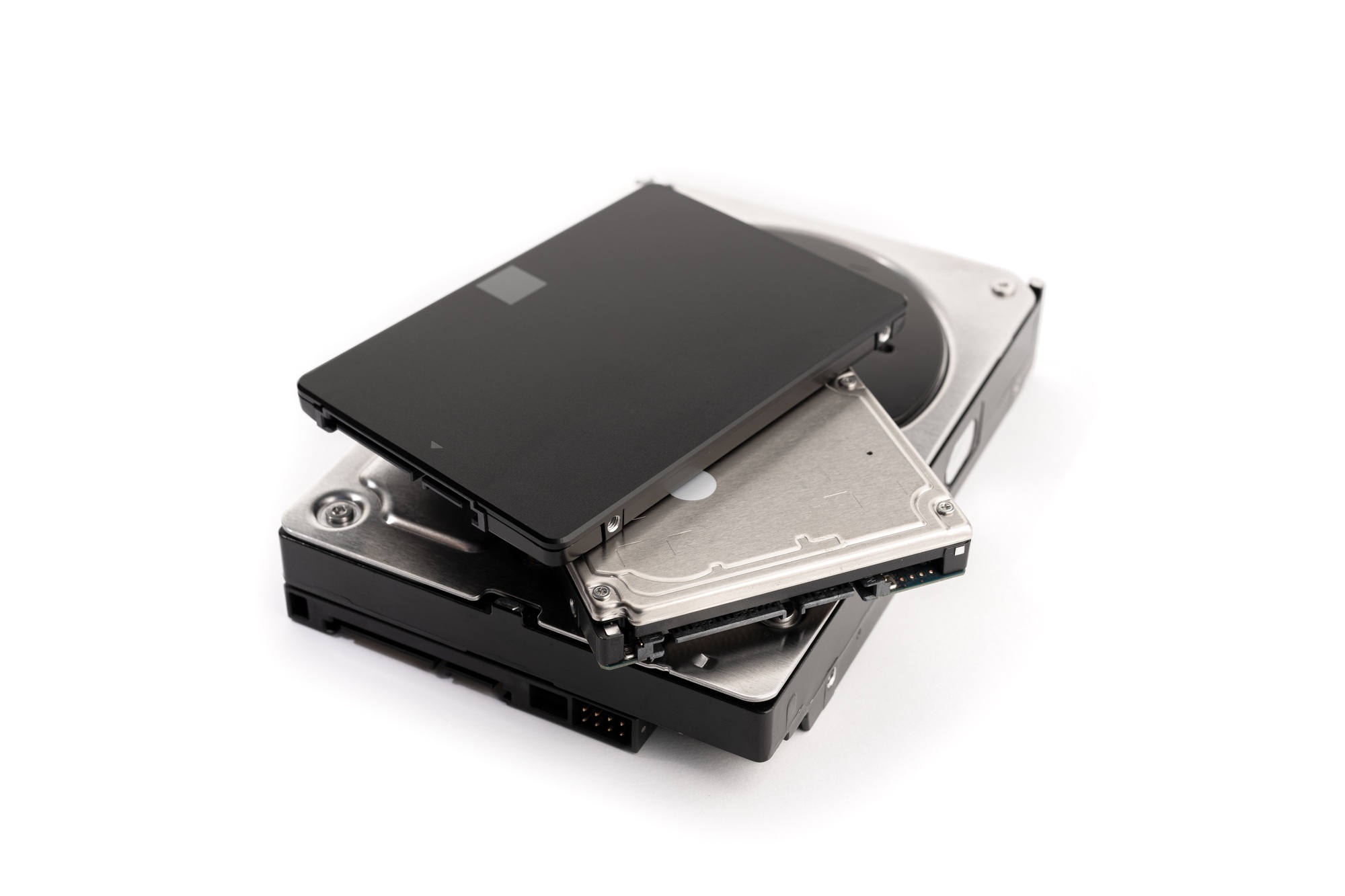Key Takeaways

- Importance of Data Backup: Backup software is essential for protecting sensitive information against data loss due to hardware failures, cyberattacks, or accidental deletions, ensuring business continuity.
- Types of Backup Software: Understand the different options available, including cloud, local, hybrid, and continuous data protection solutions, to choose the best fit for your needs.
- Key Features to Consider: Look for user-friendly interfaces, flexible backup options, and robust security measures, including encryption and access controls, to safeguard your data effectively.
- Popular Solutions: Familiarize yourself with leading backup software like HYCU, Veeam, IDrive, and NAKIVO, each offering unique benefits suited for small business environments.
- Pricing Models: Evaluate subscription-based versus one-time purchase options to determine the most cost-effective solution that aligns with your business’s data backup requirements.
In today’s digital age, protecting your data is more crucial than ever. Whether you’re a small business owner or a casual user, losing important files can be devastating. That’s where backup software comes into play. It’s not just about saving files; it’s about peace of mind knowing your information is secure.
With countless options available, choosing the right backup software can feel overwhelming. You need a solution that fits your specific needs and ensures your data is safe from unexpected disasters. From cloud storage to local backups, understanding the different types of software can help you make an informed decision. Let’s dive into the world of backup software and discover how you can safeguard your valuable data effectively.
Overview of Backup Software

Backup software plays a crucial role in protecting your data from unexpected events. For small businesses, ensuring data integrity and availability is essential in maintaining daily operations and safeguarding against potential losses.
Importance of Data Backup
Data backup is vital for small businesses to protect sensitive information, such as customer data and financial records. The risk of data loss due to hardware failures, cyberattacks, or accidental deletions is significant. Implementing a robust backup solution provides peace of mind, ensuring you can quickly restore critical files with minimal disruption. According to a study by the Data Recovery Services (DRS), 60% of small businesses that lose their data typically shut down within six months. Prioritizing data backup can keep your business resilient and operational in challenging times.
Types of Backup Software
When selecting backup software, consider these types to suit your small business needs:
- Cloud Backup Software: Stores data on remote servers, accessible via the internet. It’s cost-effective for small businesses, eliminates physical storage limitations, and offers scalability.
- Local Backup Software: Installs on your devices, creating backups on external hard drives or local servers. This method provides fast recovery options and full control over your data, crucial for immediate access.
- Hybrid Backup Solutions: Combines both cloud and local backups. This approach offers redundancy, ensuring you maintain access to data through multiple methods in case of system failures or disasters.
- Continuous Data Protection (CDP): Captures changes to data in real-time, providing near-instantaneous recovery. This technology suits businesses that require minimal downtime and immediate access to the most current data versions.
Selecting the right backup software can enhance your data protection strategy, allowing you to focus on growing your small business while effectively managing your technology risks.
Features to Look for in Backup Software

Choosing the right backup software is essential for safeguarding your data. This section highlights the crucial features necessary for effective protection and management.
User Interface and Usability
A user-friendly interface streamlines backup management. You’ll benefit from software that’s easy to navigate, even if you lack technical expertise. Look for management consoles that simplify tasks, like one-click manual backups. An intuitive design reduces the learning curve and enhances your ability to protect vital data efficiently.
Backup Options and Flexibility
Backup solutions must offer diverse options to suit your unique business needs. You can utilize various methods, such as cloud storage, local backups, or hybrid solutions that combine both. Flexibility in scheduling automatic backups at set intervals prevents data loss and ensures you’re consistently protected. Opt for software that allows customization of backup frequency and file selection to enhance operational efficiency.
Security Features
Security features play a pivotal role in data protection. Choose backup software that includes robust encryption methods, both during transfer and at rest. Additionally, verify that the software offers regular updates to defend against emerging threats. Features like access controls and audit logs help maintain data integrity, crucial for small businesses relying on sensitive information. Prioritize these security measures to fortify your backup strategy against potential breaches.
Popular Backup Software Solutions

Selecting the right backup software is crucial for small businesses to safeguard their vital data. Explore various solutions designed to meet your unique needs.
Cloud-Based Backup Solutions
Cloud-based backup solutions provide flexibility and scalability for small businesses. These solutions enable automatic backups to off-site servers, ensuring data is accessible from anywhere. Services like HYCU and Veeam excel in cloud functionality. HYCU offers automated backup jobs and quick recovery options, while Veeam specializes in hybrid cloud backup, protecting data across multiple environments like AWS and Azure. Rapid recovery is critical for minimizing downtime, allowing you to focus on business growth instead of worrying about data loss.
Local Backup Solutions
Local backup solutions involve storing data directly on physical hardware. This method offers immediate access to files, which can be vital for small businesses. For example, using external hard drives or Network Attached Storage (NAS) devices allows you to maintain control over your backup processes. IDrive shines in this area by supporting backups for multiple devices, ensuring that both computers and mobile devices remain protected. Consider using local backups to complement your primary backup strategy and safeguard against unforeseen events.
Hybrid Backup Solutions
Hybrid backup solutions combine cloud and local systems, providing the best of both worlds. These solutions protect data both on-site and in the cloud, enabling quick recovery while ensuring off-site data integrity. NAKIVO excels with its comprehensive backup features, supporting both virtual and physical machines. This approach is beneficial for small businesses that require rapid local recovery options paired with cloud redundancy. Implementing a hybrid solution ensures robust data protection against threats and accidental deletions, making your data management strategy more resilient.
Pricing and Licensing Models

When considering backup software, pricing and licensing models significantly affect your costs and usability. Understanding these options helps you choose a solution aligned with your small business’s needs.
Subscription-Based Pricing
Subscription-based pricing offers flexibility, making it suitable for small businesses with varying data backup needs. This model typically includes several options:
- Pay-As-You-Go (PAYG): Charges based on your actual usage, factoring in the amount of data stored, data transfer, and the number of backup operations. You pay only for what you consume, which can be advantageous for businesses with fluctuating requirements.
- Storage-Based Pricing: Charges correlate to the storage capacity you utilize. Different tiers are available, with higher tiers supporting more data at increased costs, allowing you to scale as your business grows.
- Per-User Pricing: Involves a fixed fee charged per user, simplifying your budgeting if you maintain a set number of users. This model is common among business-focused solutions, making it easier to plan expenses.
- Device-Based Pricing: Imposes costs based on the number of devices backed up, with a fixed monthly or annual fee per device. This setup helps you manage expenses accurately as you add or remove devices.
One-Time Purchase Options
One-time purchase options provide an alternative for small businesses that prefer to manage costs upfront. With this model, you buy a license for the software, granting you perpetual access without the recurring fees associated with subscription models. This option is advantageous if your data requirements remain stable over time, eliminating ongoing expenses related to usage or user counts. However, you’ll likely encounter costs for updates or support, so factor these into your overall budget.
Exploring both pricing models allows you to select the most suitable backup software that meets your small business’s data protection needs, balancing cost-efficiency with reliable technology solutions.
Conclusion

Investing in backup software is one of the smartest decisions you can make for your data security. With the right solution in place you’ll safeguard your important files and ensure your business can recover quickly from unexpected events.
Whether you opt for cloud storage local backups or a hybrid approach choosing software that fits your specific needs is essential. Prioritizing user-friendly features robust security and flexible scheduling will enhance your data management strategy.
Remember that the right backup software not only protects your data but also allows you to focus on growing your business with confidence. Make your choice wisely and enjoy peace of mind knowing your information is secure.
Frequently Asked Questions

What is the importance of data protection in the digital age?
Data protection is crucial in the digital age as it helps safeguard sensitive information. Losing important files can have devastating effects on small businesses and individuals alike. Effective data protection strategies prevent data loss and ensure business continuity, allowing users to manage technology risks efficiently.
How does backup software help in data protection?
Backup software acts as a safety net for your data. It enables regular copying of files to secure locations, either in the cloud or locally, ensuring quick recovery in case of data loss. This peace of mind is vital for both small businesses and casual users.
What types of backup methods are recommended?
The article recommends several backup methods: cloud storage for off-site access, local backups for quick file retrieval, and hybrid solutions that combine both. Continuous Data Protection (CDP) is also highlighted for its ability to provide real-time backups, enhancing data security.
Why should small businesses prioritize data backup?
Small businesses should prioritize data backup because 60% of those experiencing data loss may shut down within six months. Reliable data backups protect essential information and support business operations, minimizing disruptions during unexpected events.
What features should I look for in backup software?
When selecting backup software, look for a user-friendly interface, diverse backup options, flexible scheduling, and robust security features, including encryption and access controls. These elements enhance usability and ensure your sensitive data remains safe.
What are some popular backup software solutions for small businesses?
Popular backup software solutions include cloud-based options like HYCU and Veeam, known for their flexibility, local solutions like IDrive for immediate access, and hybrid systems such as NAKIVO for comprehensive data protection. Each offers unique benefits suited for different business needs.
How does pricing and licensing affect backup software selection?
Pricing models—such as subscription-based (Pay-As-You-Go, per-user) and one-time purchases—play a significant role in software selection. Businesses should choose a model that aligns with their budget and operational needs, ensuring reliable data protection without overspending.
Image Via Envato



